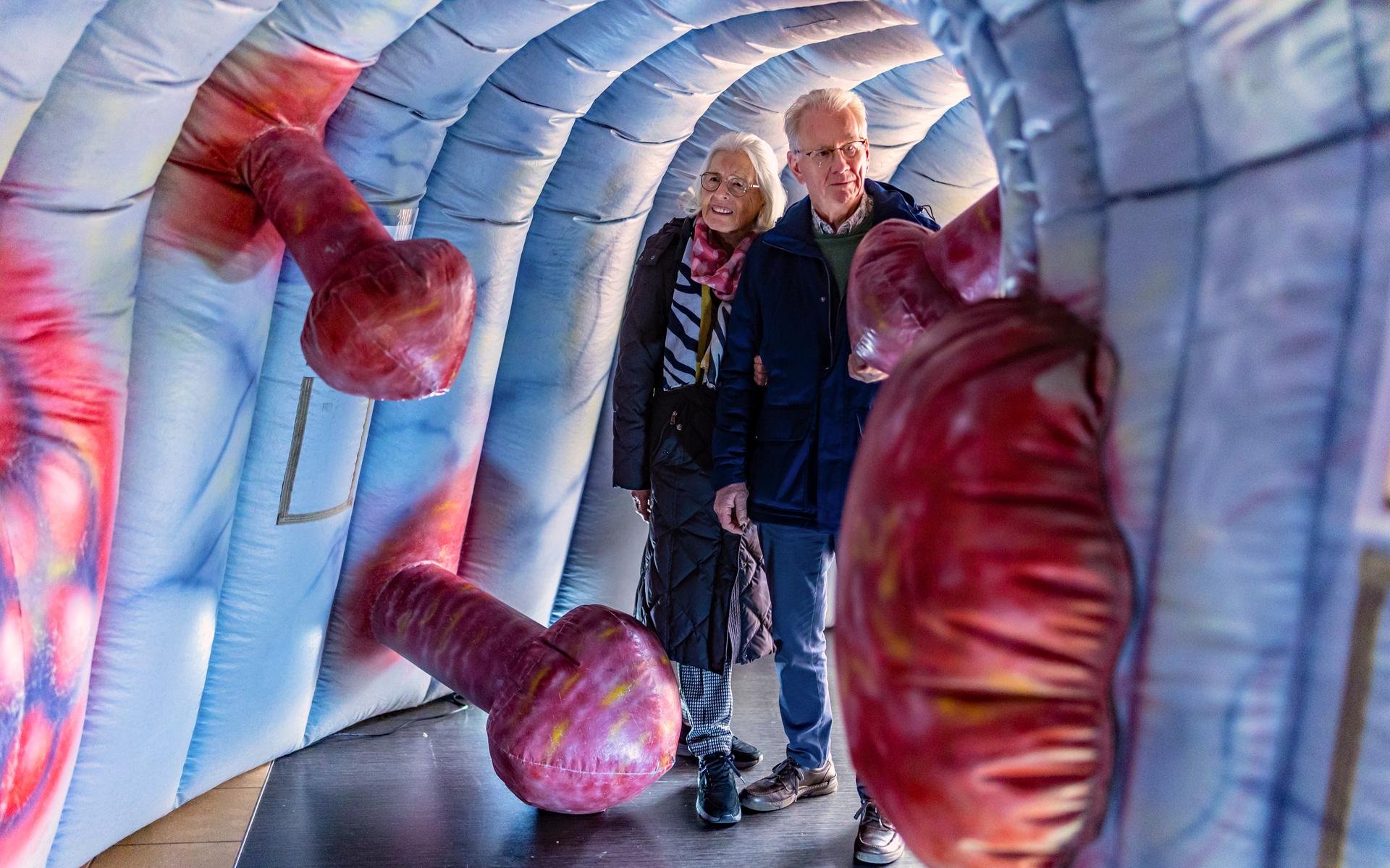Six hundred Frisians are told every year that they have colon cancer. This is a number that is increasing due to the aging of the population. Thanks to population research, the disease is often detected at an early stage.
However, as with other population studies, the percentage of people participating in colon cancer studies is decreasing. To be precise: from 71% in 2021 to 68% in 2022 (the 2023 figure is not yet known). “This may not seem like a lot, but if this happens year after year, it matters to thousands of people,” says Joeri Douma, MD, an internal oncologist at MCL.
Educating people about the importance of participating is one of the goals of the annual Bowel Cancer Month, which began on March 1.
The decline in the number of participants has become a trend in recent years. This will be followed by extensive research by RIVM, but previous research shows that part of the target group has not been adequately reached. It often concerns people with low income, low education and/or with a migration background. Douma: “It is often people who are most at risk.” Defects can also play a role. For example, a population survey does not provide 100 percent certainty and the results may worry participants.
4500 deaths annually
Colon cancer is one of the most common types of cancer worldwide. Twelve thousand people are diagnosed nationwide each year and 4,500 people die each year from the consequences of this disease. It is not known how many there are in Friesland.
Duma explains that cancer develops gradually and often begins in the form of polyps that can become malignant. “When we started population surveys in 2014, the number of diagnoses rose dramatically. That's because we found colon cancer at all kinds of stages, including early stages, where people didn't have any complaints yet.” In people whose polyps were discovered, they could be removed and colon cancer could no longer develop from them. Now the number of patients is decreasing because people with benign tumors have been “filtered out” during examinations.
Immunotherapy
The biggest advance in cancer treatment in recent decades is immunotherapy, a treatment that uses the body's own immune system. This is one of the topics that Duma will talk about during a symposium on March 4 at the Media Center. “It can give very beautiful results, without many side effects. Unfortunately, it is only effective in a limited number of patients with (rectal) cancer.”
Another development is the growing interest in colon cancer prehabilitation, the principle that patients enter their procedure in a fitter state with the help of guidance. Douma: “We make people exercise more in advance so that they are fitter for treatment and recover better after the operation.”
Bowel Cancer Month in Friesland
Tumors Organized by Netwerk Friesland (ONF) in cooperation with the four Friesian hospitals and Skulp in March Multiple activities.
*Monday, March 4: Colon Cancer Symposium at the Multilateral Medical Center (7-9 p.m.). With lectures on, among others: Identify and prevent colon cancer. Entry is free (register www.deskulp.nl).
* In the hall of the Tjongerschans Hospital in Heerenveen there will be great Inflating the intestines, through which a person can walk and see colon polyps and other things Bowel abnormalities appear. There is also information about the importance of a healthy lifestyle Promote good bowel movements.
* Neig Smlinge, Drachten: On 18 March (6:30pm – 9pm) interested parties can Discuss the consequences of treatment with health care providers Colon Cancer. Among other things There is a dietitian, physiotherapist and ostomy/incontinence nurse. (Registration required)
* Antonius Sneek: Information Market on March 27 (10 am – 4 pm). I On five platforms you can talk to stoma nurses. Oncology nurse specialist and representative Colon cancer app.
www.oncologicalnetwerkfriesland.nl

“Total coffee specialist. Hardcore reader. Incurable music scholar. Web guru. Freelance troublemaker. Problem solver. Travel trailblazer.”







More Stories
GALA lacks a chapter on e-health
Weird beer can taste really good.
Planets contain much more water than previously thought